Working papers
-
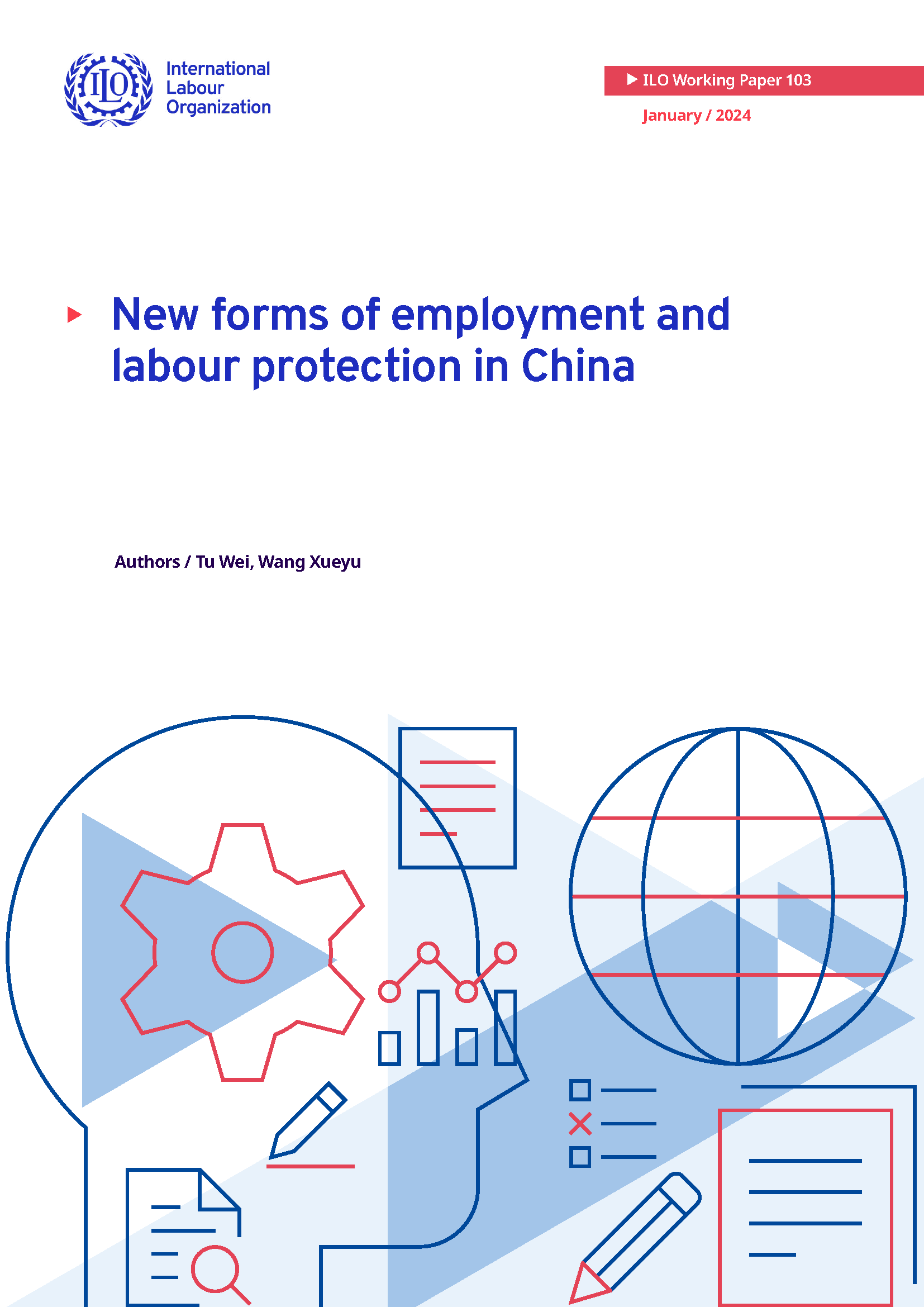
ILO Working Paper 103
New Forms of Employment and Labour Protection in China
20 February 2024
The objective of this paper is to provide a panoramic description and analysis of the diversity of the new forms of employment that have been emerging in China, with the focus on their background, the main types, the status quo of labour rights protection, and the government's responses to the challenges of labour regulations brought by NFE. Finally, on the basis of the above, the paper puts forward corresponding policy recommendations on how to improve workers' protection in new forms of Employment.
-

ILO Working paper 102
A Technological Construction of Society: Comparing GPT-4 and Human Respondents for Occupational Evaluation in the UK
19 January 2024
The paper systematically compares GPT-4's evaluations of occupations with those from a high-quality human survey in the UK, finding high correlation but also highlighting the potentials and risks of using LLMs in sociological and occupational research.
-
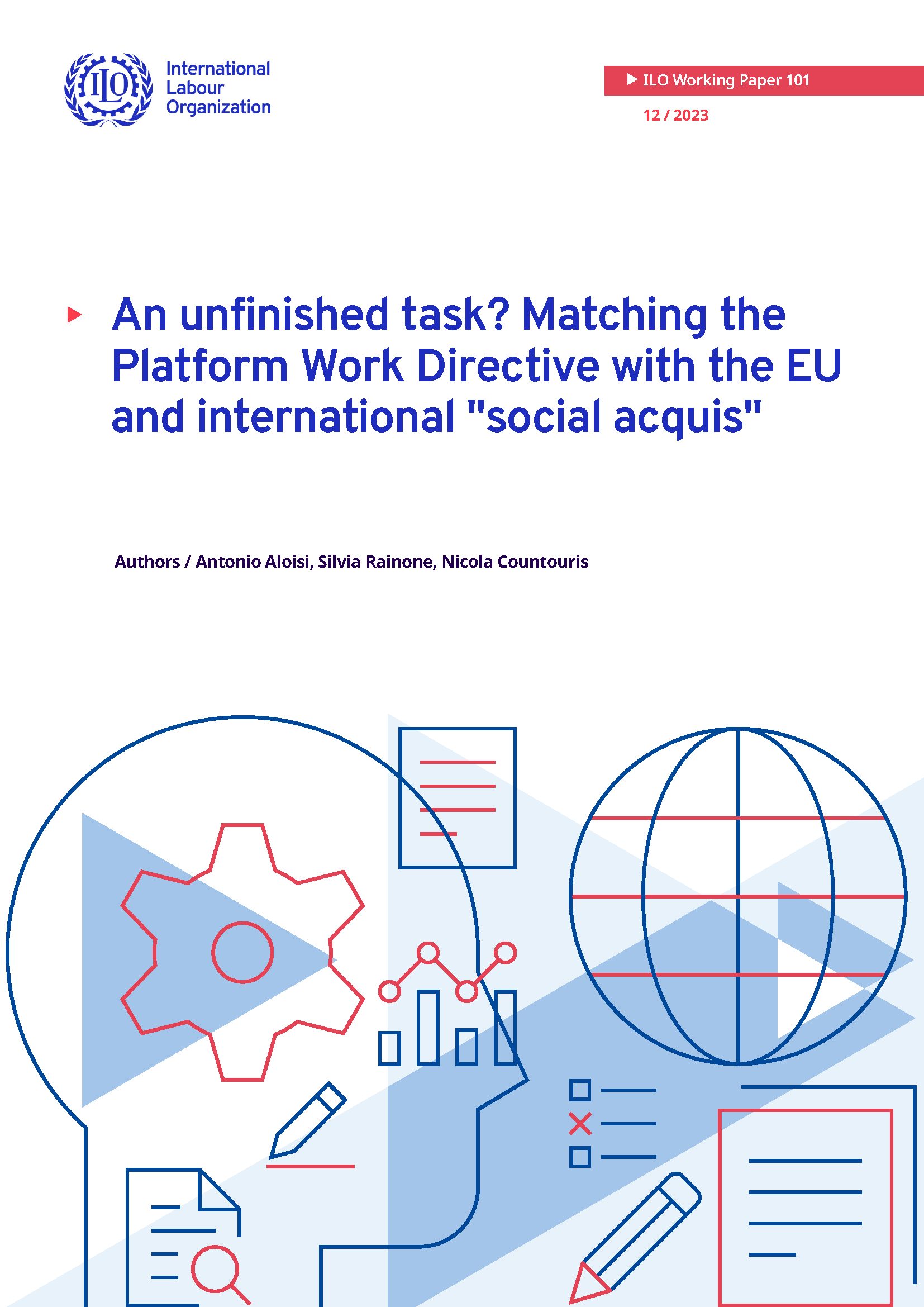
ILO Working paper 101
An unfinished task? Matching the Platform Work Directive with the EU and international "social acquis"
20 December 2023
This paper seeks to explore the key emerging regulatory dimensions of platform work. It contextualizes the challenges associated with platform work as an expression of the consolidated features that, in the past decades, have been transforming the labour market: non-standardization and the deregulation of employment relationships.
-
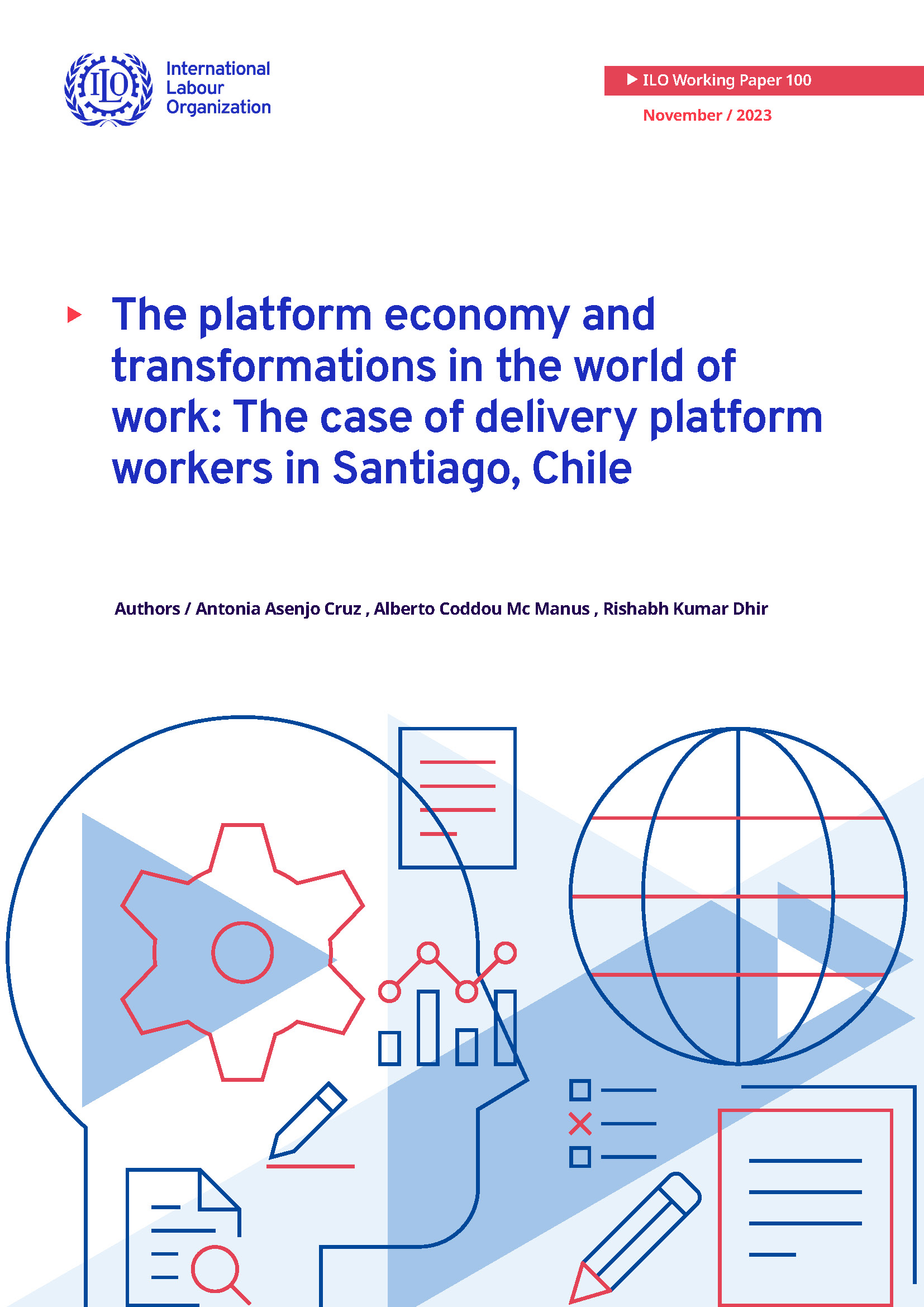
ILO Working paper 100
The platform economy and transformations in the world of work: The case of delivery platform workers in Santiago, Chile
05 December 2023
This paper examines the experiences of delivery workers on digital labor platforms in Chile and analyses the implications of the platform business model. It highlights challenges in working conditions and algorithmic management practices, which are crucial to address for ensuring decent work, as Chile moves towards implementing a new law to regulate platform work.
-
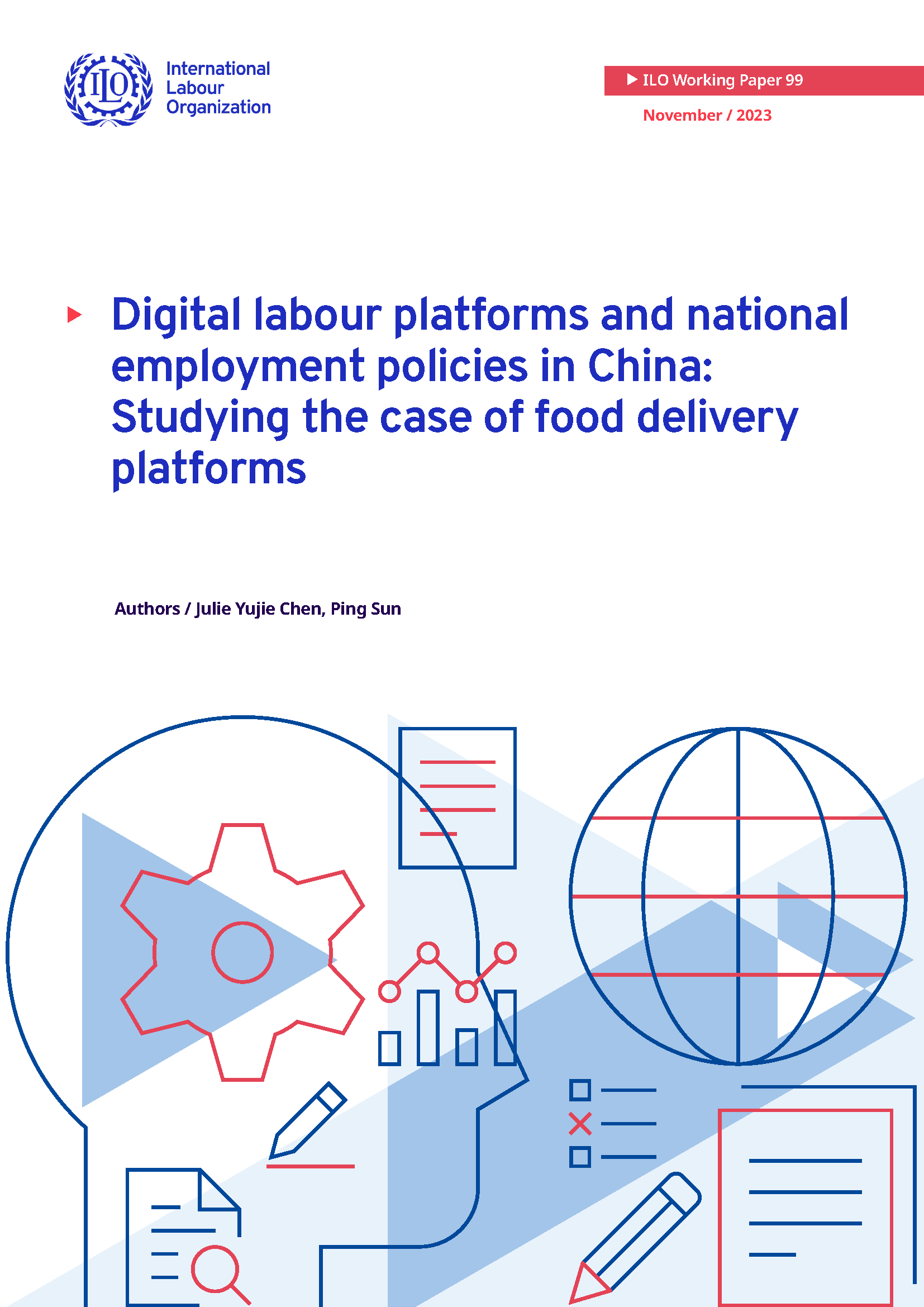
ILO Working paper 99
Digital labour platforms and national employment policies in China: Studying the case of food delivery platforms
04 December 2023
This paper takes the food-delivery platforms as a case study to examine the impact of digital labour platforms on employment and labour market in China. It reviews the recent employment policies in the digital economy including policies of labour relations, social security, wages, etc., and suggests the new approaches and elements for the comprehensive national employment policies framework in the era of digitalization in China.
-
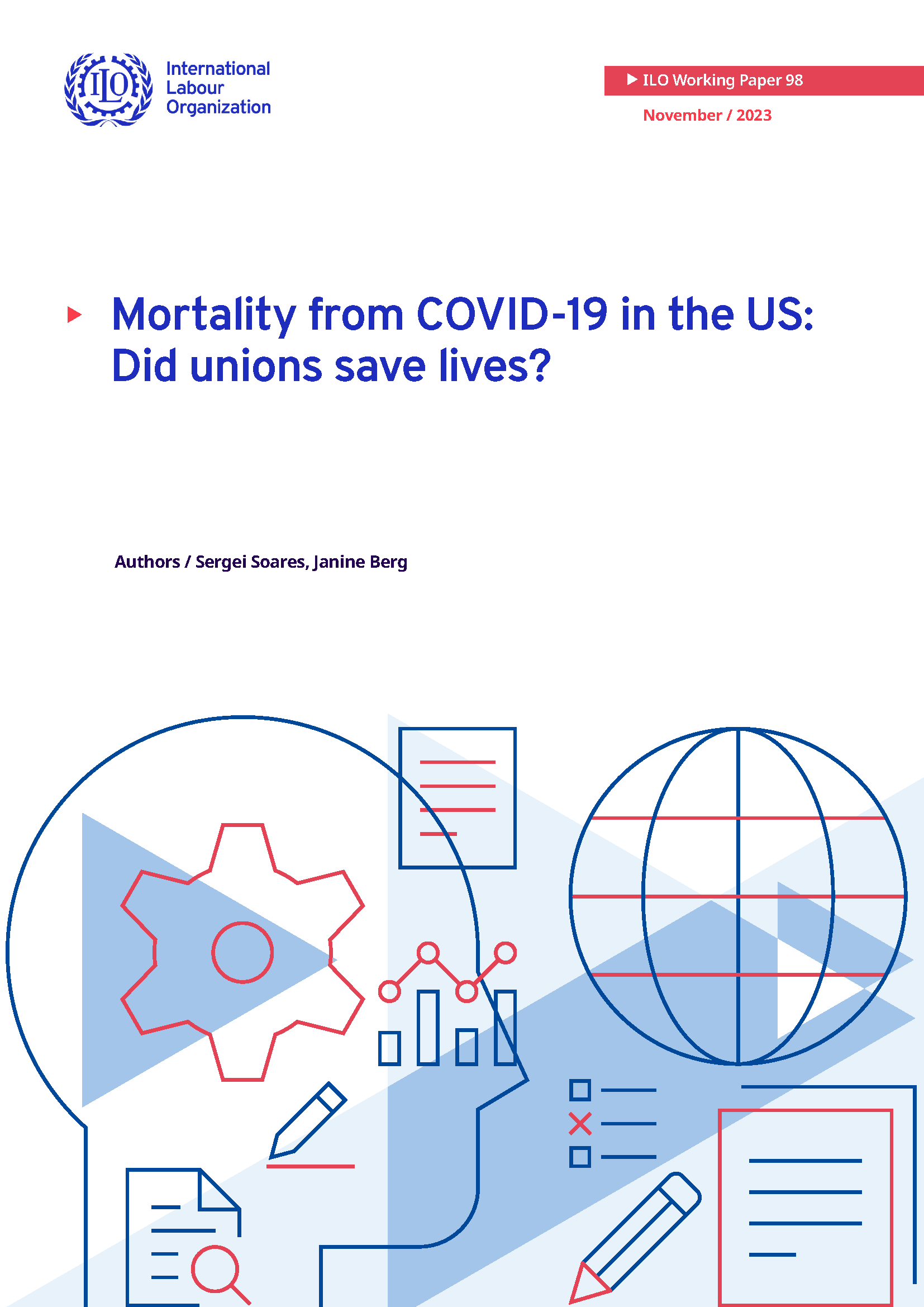
ILO Working paper 98
Mortality from COVID-19 in the US : Did unions save lives?
08 November 2023
This paper combines data from the NVSS with the CPS into a unique dataset to answer the question on whether unions saved lives during the COVID-19 Pandemic. It finds that if the United States had the union density of 35 percent that it had in 1954 instead of today’s rate of 10 percent, the COVID-19 mortality rate for working people would have been 19 per 100,000 instead of the 26 actually observed.
-
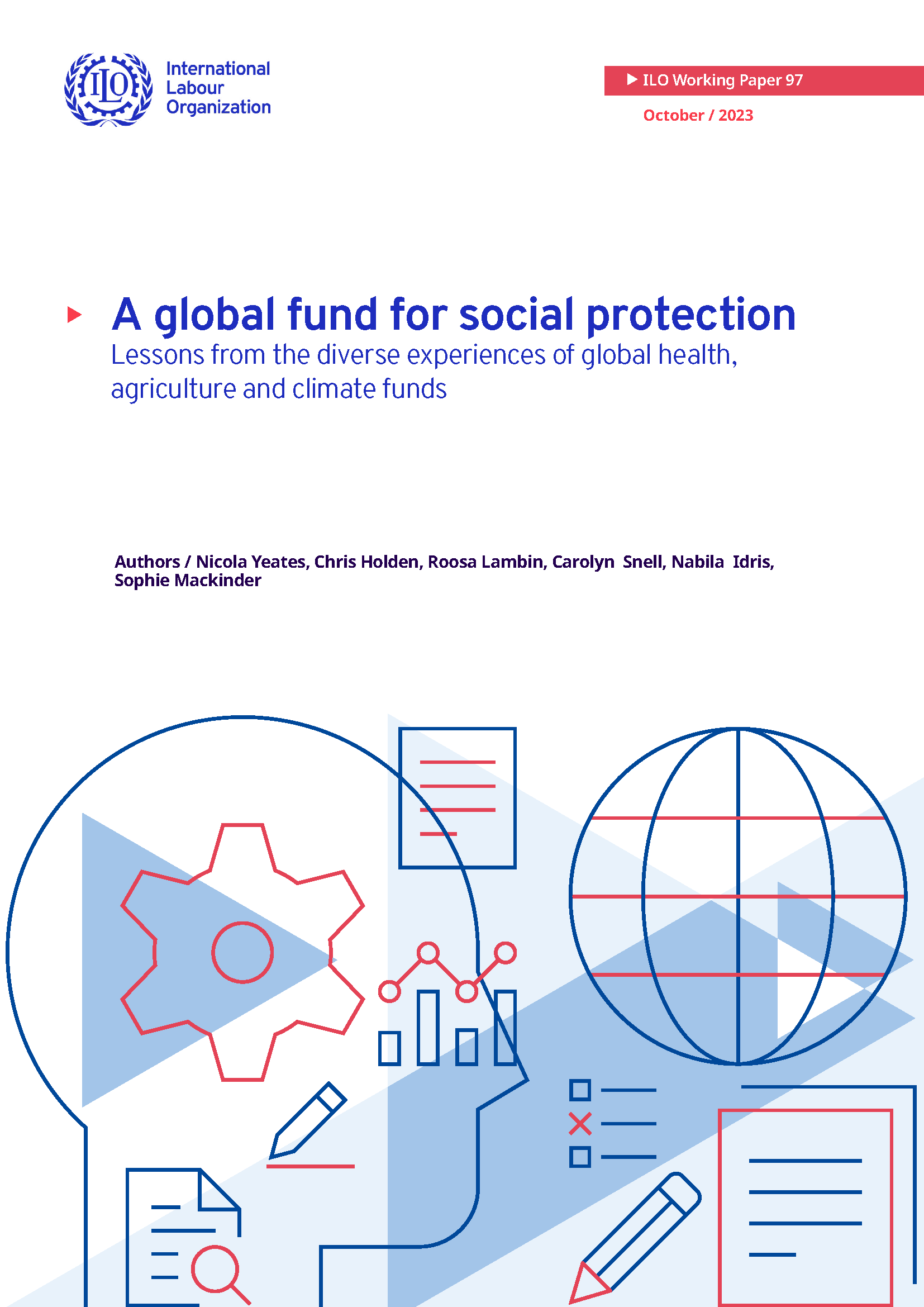
ILO Working Paper 97
A global fund for social protection. Lessons from the diverse experiences of global health, agriculture and climate funds
06 October 2023
This study aims to understand the experiences of setting up global funds across the health, climate and agriculture sectors and identify lessons to be learned from them that can guide further thinking about the implementation of a prospective global fund for social protection.
-
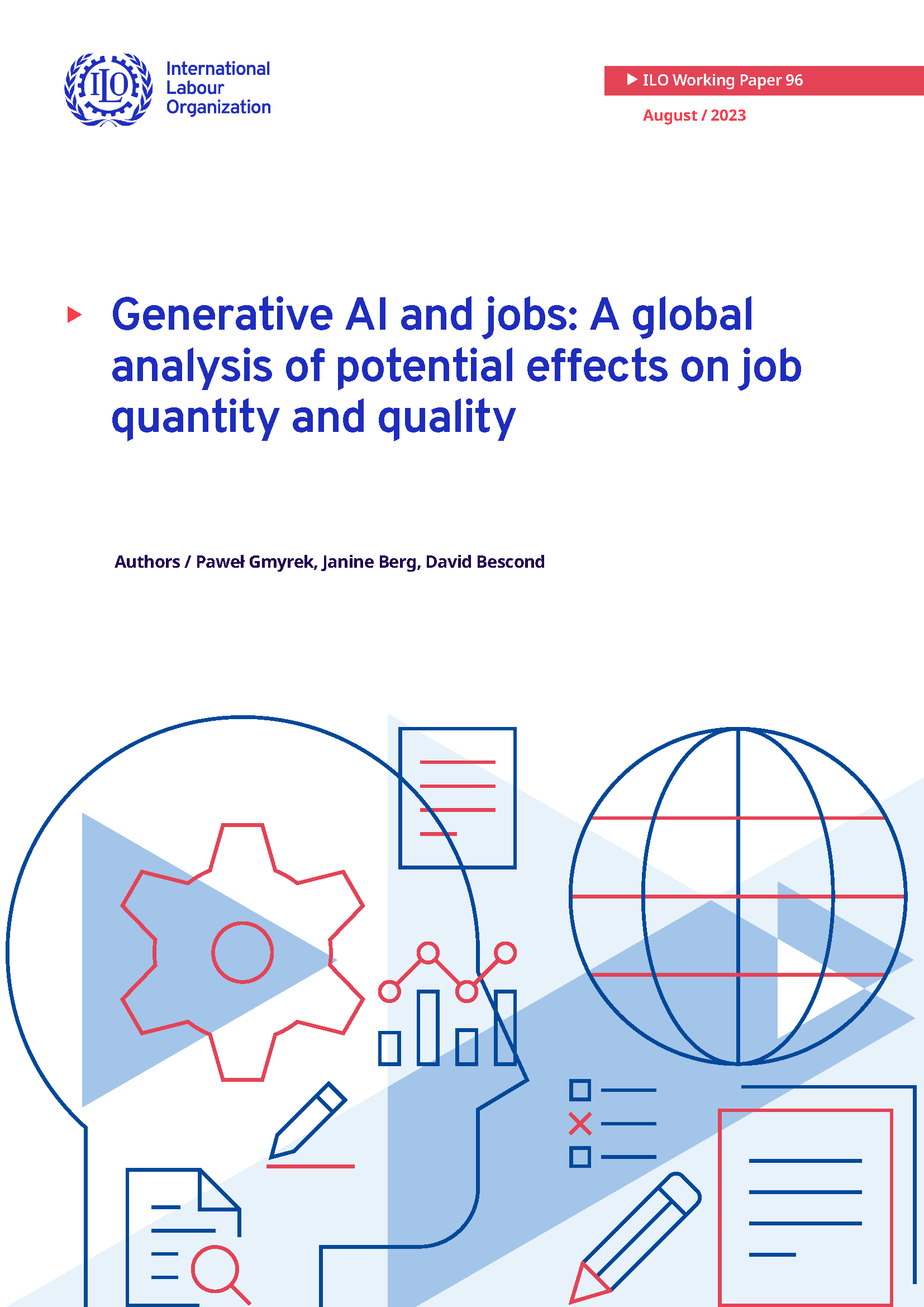
ILO Working paper 96
Generative AI and Jobs: A global analysis of potential effects on job quantity and quality
21 August 2023
This study assesses the potential global exposure of occupations to Generative AI, particularly GPT-4. It predicts that the overwhelming effect of the technology will be to augment occupations, rather than to automate them. The greatest impact is likely to be in high and upper-middle income countries due to a higher share of employment in clerical occupations. As clerical jobs are an important source of female employment, the effects are highly gendered. Insights from this study underline the need for proactive policies that focus on job quality, ensure fair transitions, and that are based on dialogue and adequate regulation.
-
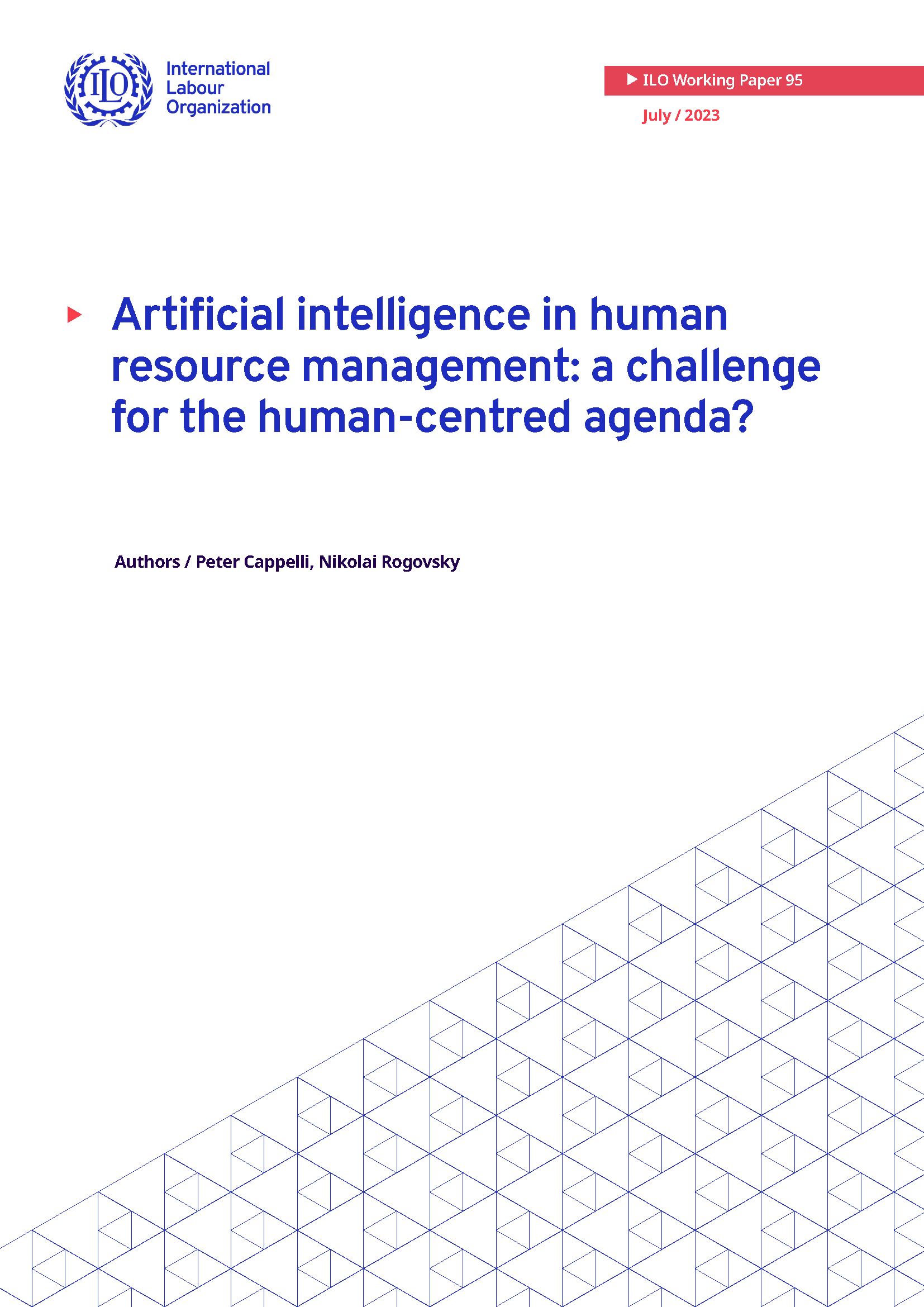
ILO Working paper 95
Artificial intelligence in human resource management: a challenge for the human-centred agenda?
25 July 2023
This paper offers guidance as to when and where the use of AI in HRM should be encouraged, and where it is likely to cause more problems than it solves.
-
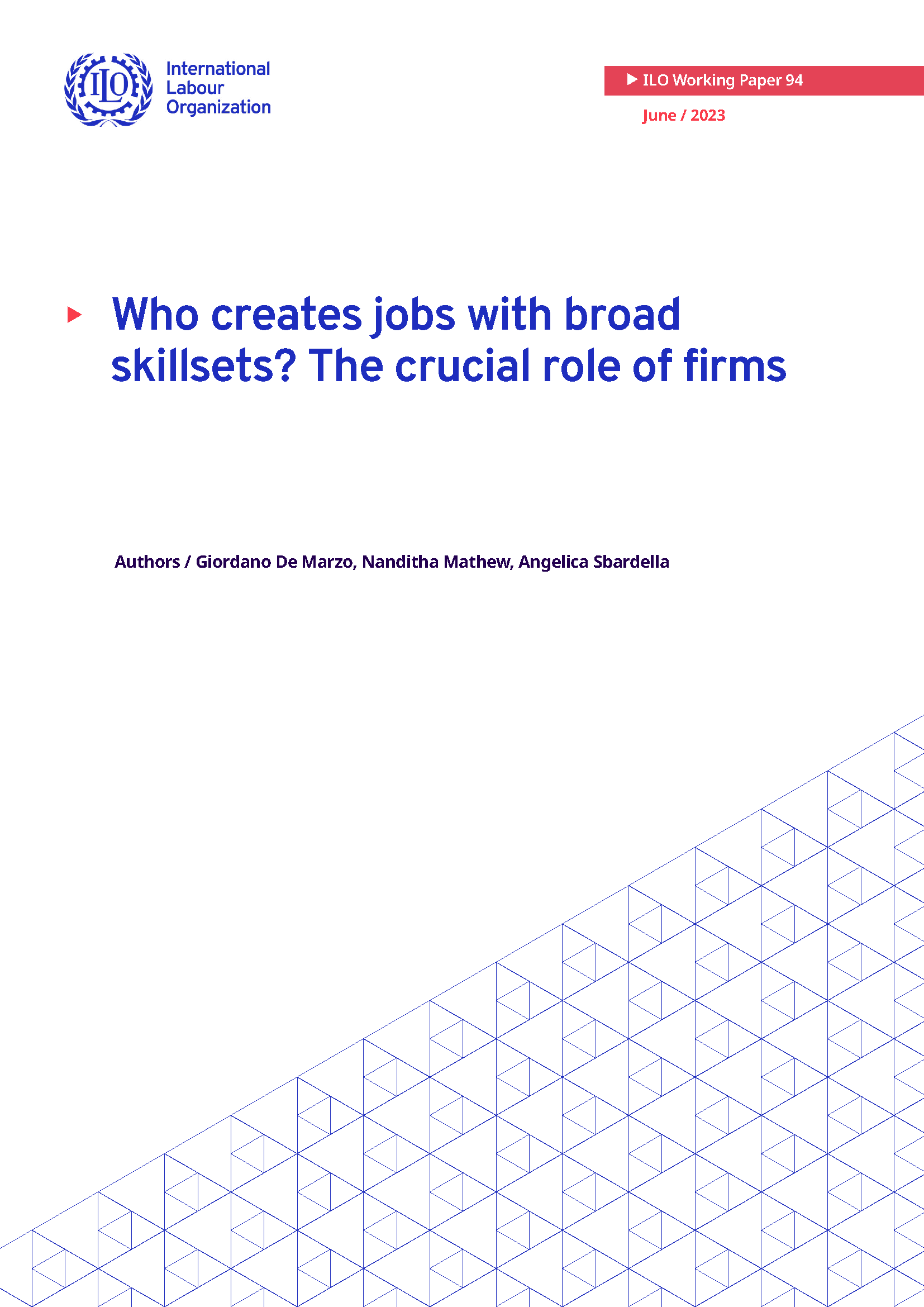
ILO Working paper 94
Who creates jobs with broad skillsets? The crucial role of firms
26 June 2023
Using matched firm-level and online job vacancy data from India, this study finds significant heterogeneity in skill requirements across firms within the same occupations. It also shows that more competitive and innovative firms require digital skills and specific combinations of digital and other skills. The study highlights that firms are not passive recipients of new technologies, but rather play a crucial role in defining the changing nature of work.